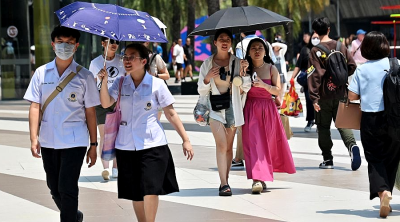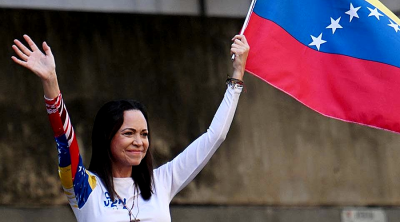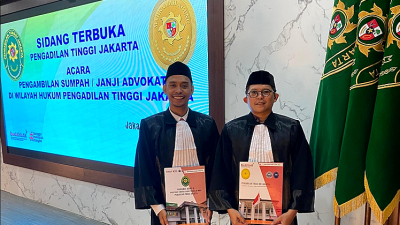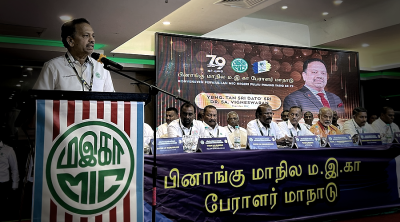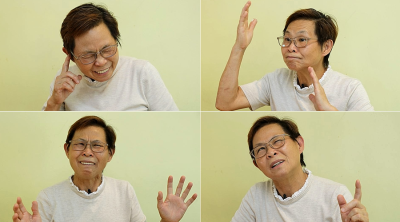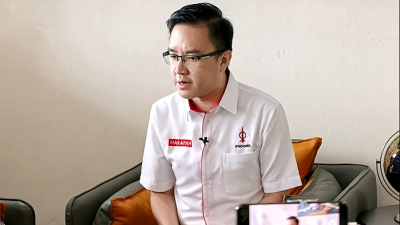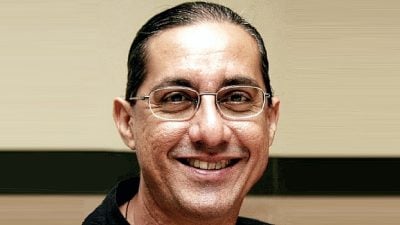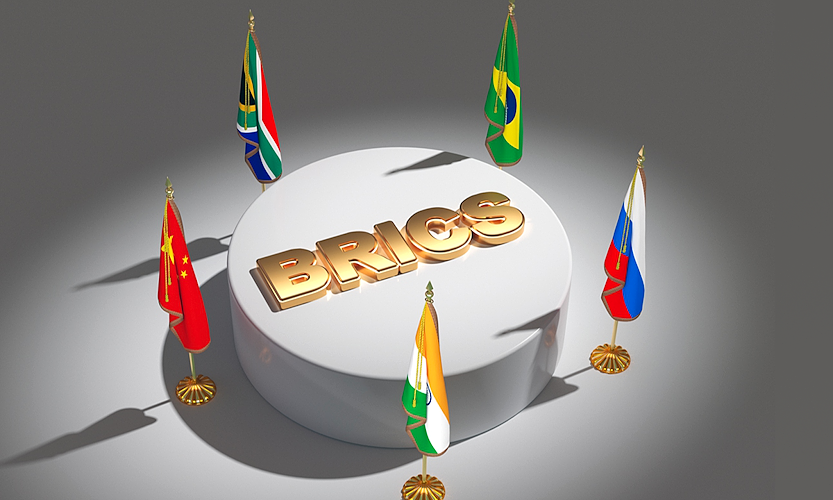
When discussing Indonesia’s foreign policy, the term bebas-aktif (free and active) frequently arises.
It is a foreign policy principle of Indonesia first articulated by Mohammad Hatta, the country’s first vice president. It was conceived early in the nation’s independence as a means to navigate the geopolitical dynamics of the time.
Over the years, it has become the cornerstone of Indonesia’s foreign policy and is still regarded as an inseparable principle despite the changing nature of successive administrations.
In contemporary Indonesian foreign policy, the principle is being implemented more literally.
This is evident in Indonesia’s desire to join the Organisation for Economic Co-operation and Development (OECD) and the BRICS economic blocs.
The aspiration to join these blocs has drawn diverse opinions from experts; some criticise the move while others support it.
In this opinion essay, I argue that Indonesia’s ambition to join both blocs could provide opportunities for the nation but may also undermine its national interests.
Regarding background, Indonesia has been a vital partner of the OECD since 2007 and aims to become a member state by 2027.
In a press statement by then-coordinating economic minister Airlangga Hartarto in May 2024, he announced that Indonesia had been accepted as an accession state at the OECD Ministerial Council Meeting in Paris on May 2 and 3, 2024.
Regarding BRICS, then-president Joko “Jokowi” Widodo was invited to the BRICS Summit in Johannesburg in 2023, attending in Indonesia’s capacity as ASEAN chair for that year.
During the summit, Indonesia was invited to become a permanent member of BRICS. However, president Jokowi declined the invitation, citing the need to consult with other ASEAN members first.
Indonesia’s BRICS narrative continued following the inauguration of President Prabowo Subianto in October 2024.
Shortly after the new cabinet’s inauguration, Foreign Minister Sugiono attended the BRICS Summit in Kazan in Russia and stated that Indonesia was pursuing membership in the bloc.
Indonesia’s membership in the OECD and BRICS could provide significant opportunities.
As a middle power, Indonesia plays a normative role in shaping the international agenda while promoting international norms and principles.
Indonesia’s bebas-aktif foreign policy principle ensures the country can engage with diverse international actors.
This is evident in Indonesia’s active engagement with the Global South and frequent interactions with the Global North and the world’s major powers.
Furthermore, these engagements have positioned Indonesia as a “bridge builder” (at least according to the elites) between countries and blocs in the international system.
Indonesia’s participation in the OECD and BRICS could bring the concerns of developing countries and the Global South to forums involving the world’s powerful economies while advocating for greater institutional inclusivity through its status as a normative middle power.
Moreover, closer relationships with the world’s largest economies could yield substantial economic benefits for Indonesia, which prioritises economic development and growth.
Lastly, in the case of BRICS, Indonesia could trade more freely using non-United States dollar currencies. At the same time, membership in the OECD could enhance opportunities for access to and transfer of technologies.
Despite the opportunities they provide, these memberships also raise concerns regarding Indonesia’s national interests.
In the case of BRICS membership, the need for a clear economic policy within the bloc potentially hampers Indonesia’s goal of economic growth.
Additionally, BRICS, which includes countries like Russia and China, might damage Indonesia’s international standing due to perceptions of aligning with specific geopolitical camps and revisionist powers, especially since BRICS is often viewed as more than just an economic bloc.
On the other hand, the OECD’s high entry barrier could mean that it will take Indonesia several years to join the bloc due to the required domestic reforms, both in economic and political aspects.
These aspects could include trade protectionism, corruption, law and legislation, labour and human rights.
Consequently, this might hamper Indonesia’s short-term goal for economic growth due to the inability to integrate with some of the world’s prominent economies.
Additionally, Indonesia’s membership in the OECD could incite domestic pushback due to perceptions of participating in an institution that includes Israel, a member of the OECD, which many fear could shift Indonesia’s support toward Palestine.
Indonesia’s foreign policy, guided by the bebas-aktif principle, has evolved since its inception by Mohammad Hatta to navigate contemporary global dynamics effectively.
Currently, Indonesia is using its bebas-aktif principle as justification for considering membership in both the OECD and BRICS, facing both opportunities and challenges from these organisations.
While joining the OECD could enhance access to developed markets and technologies, it may entail risks related to short-term economic growth and shifting relations with Israel regarding Palestine.
On the other hand, BRICS membership raises concerns about the bloc’s need for more apparent economic policy and alignment with revisionist powers like Russia and China, potentially compromising Indonesia’s nonaligned stance despite the opportunity to participate in a non-Western international economic system.
The government must be cautious in weighing the benefits of economic growth against risks to national interests, particularly concerning geopolitical alignments in the case of BRICS and domestic perceptions linked to Israel and support for Palestine in the case of the OECD.
Ultimately, membership in both organisations needs to be evaluated in terms of costs and benefits for Indonesia, especially considering its status as a middle power and its non-aligned stance.
Therefore, Indonesian policymakers must deeply contemplate these issues and include a wide range of foreign policy actors in the discussion before deciding on membership in either organisation.
ADVERTISEMENT
ADVERTISEMENT









